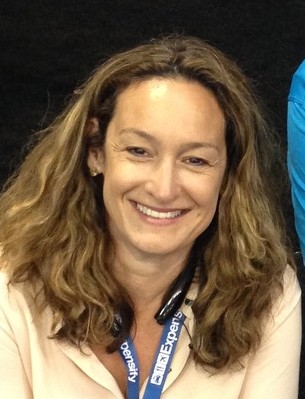With all the momentum around the easy access to customer data across the digital landscape and the variety of tools that let marketers make quick sense of that data, some might think human intuition is becoming obsolete.
We're here to say human instinct is alive and well in the world of IoT and Big Data. Marketing Land's article Human Intuition Vs. Marketing Data: Forging A New Alliance states,
"The human brain remains one of the most flexible and potent sources of computing on the planet…And the most effective marketing analytics solutions are those that recognize that human intuition - and perhaps most importantly, human curiosity - plays a critical role in moving from data to insight to decision to action."
Netflix Decides with Data and Human Instinct
Netflix gets a lot of attention for its use of data to drive its powerful recommendation engine. It's often cited as a key to the company's continued global success, helping people discover lesser-known content that will delight them.
But along with streaming a large catalogue of movies and TV shows, Netflix has been gradually shifting its business model to emphasize more of its own original TV shows and movies. These Netflix originals (think House of Cards and Orange Is The New Black) have become cultural phenomena in their own right.
Netflix has said it uses data analytics in researching the development of new programming. But at the recent DLD Conference in Munich, Germany, CEO Reed Hastings noted that the company still leans just as hard on "gut instinct" in the realm of selecting its original content.
"We start with the data," Hastings said. "But the final call is always gut. It's informed intuition."
It's a good reminder for just about anyone working in the realm of Big Data. Yes, data can drive exciting new insights and learning. It's a revolution. But that doesn't mean it's time to forget the human side of the equation.
And it's notable that this argument is made by Hastings. Not only is he one of Silicon Valley's most successful CEOs, he's also a former artificial intelligence engineer. So he knows a thing or two about Big Data and how it works under the hood.
In the case of Netflix, that means the company bets big on data. But it also means, according to Hastings, that the people in position to make decisions have to be able to interpret that data, know its limits and make those hard calls on "gut instinct."
Data won't provide all the answers, and at some point the human in charge has to decide.
Of course, data picks right up again after those decisions have been made. For Netflix, that has provided interesting and unexpected insights into programming and viewing behavior. For example, the company is funding development of an original French-language series, called Marseille, because data shows that French TV is popular around the world. That might come as a surprise to people in France, where the reputation for the quality of TV shows remains far below the country's films.
Netflix also discovered through its data that many shows develop audiences in ways that might seem unpredictable. For one new show, Narcos, the plot is based in South America, created by a French studio and a massive hit in Germany of all places.
Discovering what drives those connections, Hastings said, will be a key tool in Netflix's long-range goal of revolutionizing the way we make, watch and discover content.
Marketing Land's article hits the nail on the head: "Creative interpretation of the data is always going to be essential."
The inspiration companies find to solve their biggest challenges hinges on people knowing what questions to ask and what priorities to set. Data is essential in helping answer those questions and achieving those goals. When human instinct and the right data work in concert, the yin and yang of inspiration comes to life in the best ways possible.

